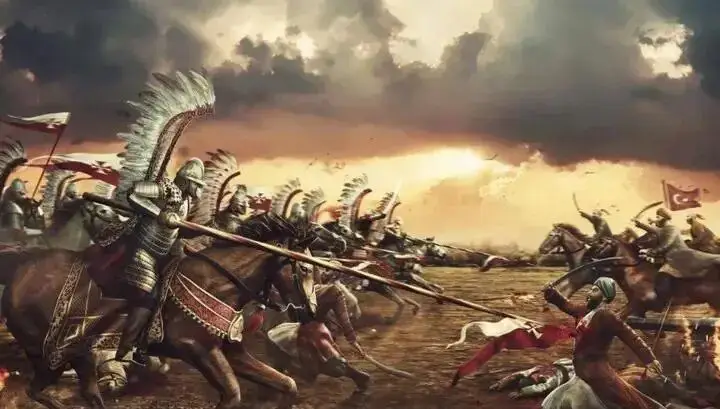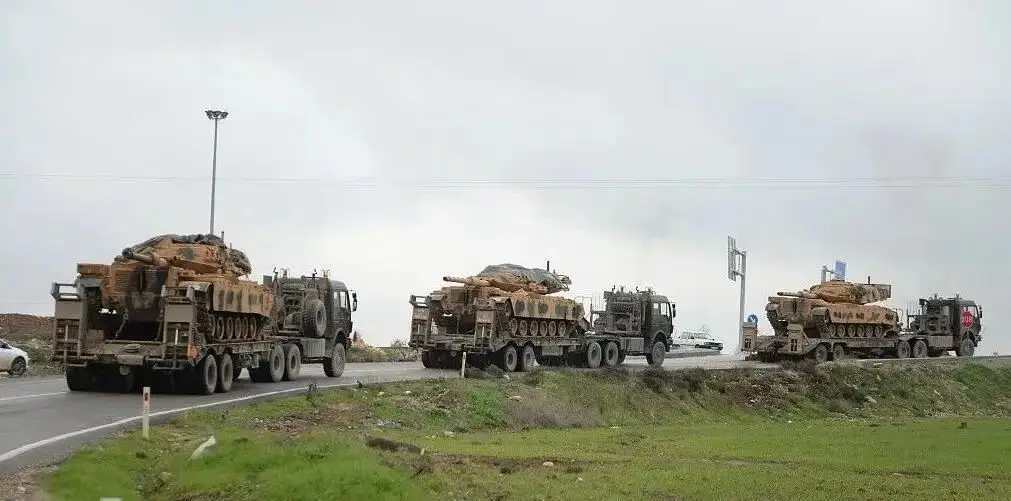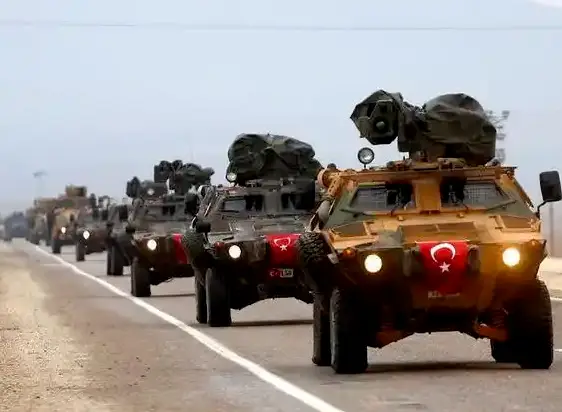This time, it's not Japan; another Asian power is rising, leaving both the US and Russia wary.
In today's global military landscape, the rise of some countries appears to be silent, yet incredibly powerful. Among these, Turkey is undoubtedly one of the most noteworthy. It serves not only as a geographical bridge spanning Europe and Asia, but also profoundly influences the evolution of the global strategic landscape militarily.
With its unique geopolitical advantages, powerful military equipment, and agile diplomatic strategies, Turkey has rapidly risen from a regional power to a formidable force on the global military stage.

Turkey's military strength is world-class, both in terms of equipment size and technological sophistication. Its air force boasts nearly a thousand fighter jets, including flagship aircraft like the F-16, which demonstrate significant advantages in both combat capability and effectiveness. This vast air force not only safeguards Turkey's air sovereignty but also makes it a leading player in air operations in Eastern Europe and the Middle East.
Even more eye-catching was Turkey's independently developed "Red Apple" drone. As a multi-purpose stealth drone, its debut not only demonstrated a breakthrough in Turkish military technology but also signaled the country's rise in global drone technology. With this breakthrough, Turkey demonstrated to the world its ambition and potential in high-tech fields.
However, Turkey's rise relies not solely on its advanced military equipment but also on its unique geographical location and deft diplomatic strategy. As a NATO member, Turkey is strategically located at the junction of the Black Sea and the Mediterranean, controlling crucial sea lanes.
For this reason, Western powers have consistently provided military assistance to Turkey, especially within the strategic framework of countering Russia, where Turkey's importance has become increasingly prominent. Conversely, Turkey has also skillfully engaged in close cooperation with Russia, particularly on Middle East issues, greatly enhancing its strategic autonomy.
This flexible diplomatic strategy has enabled Turkey to not only benefit from Western military assistance but also to draw upon vast strategic resources from Russia, thus gaining a favorable position in the great power game.

Turkey's military strength is not limited to its air force and drones; its army and navy are also formidable. Turkey's army boasts a formidable armored force, and its heavy equipment has demonstrated exceptional combat capabilities in various military conflicts. Simultaneously, the Turkish Navy is gradually developing a modern fleet, effectively protecting the country's maritime interests and establishing a strong military deterrent in the Mediterranean. This comprehensive military deployment has established a robust defense in multiple areas, placing it in a dominant position in regional conflicts.
Turkey's rise marks the transformation of a regional power into a global military power. The key to this transformation lies in its ability to find its place in the complex international landscape. Whether through close cooperation with the West or pragmatic, win-win cooperation with Russia, Turkey has maximized its military capabilities through flexible diplomatic tactics. Against the backdrop of an increasingly complex global military landscape, Turkey is not only strengthening its military capabilities to counter external threats but also pursuing an independent strategic direction. It is not only a participant in the great power game but also a strategic force capable of playing a decisive role at critical moments.

Turkey's rise has had a profound impact on the international military landscape. With its growing military strength, Türkiye's position in global strategy has steadily risen. As competition among global powers intensifies, Turkey's ability to maintain its flexible diplomatic strategies and continuously strengthen its military capabilities will become a crucial factor influencing regional and global developments. Turkey not only faces challenges from Eastern Europe and the Middle East, but also faces the challenge of balancing complex relationships with major powers globally. Its future military trajectory will directly impact the global strategic balance, worthy of our continued attention and profound reflection.
In short, Turkey's rise is not merely the rise of a regional military power, but also a shift in the strategic standing of a major power. After years of accumulation and innovation, its military has the potential to compete with other major powers on the global stage. In this global competition among major powers, Turkey has successfully forged a unique path to rise, leveraging its unique advantages and flexible strategic layout. How this path will impact the global military landscape in the future warrants the continued attention and deep reflection of every strategic observer.

%20--%3e%3c!DOCTYPE%20svg%20PUBLIC%20'-//W3C//DTD%20SVG%201.1//EN'%20'http://www.w3.org/Graphics/SVG/1.1/DTD/svg11.dtd'%3e%3csvg%20version='1.1'%20id='图层_1'%20xmlns='http://www.w3.org/2000/svg'%20xmlns:xlink='http://www.w3.org/1999/xlink'%20x='0px'%20y='0px'%20width='256px'%20height='256px'%20viewBox='0%200%20256%20256'%20enable-background='new%200%200%20256%20256'%20xml:space='preserve'%3e%3cpath%20fill='%23FFFFFF'%20d='M194.597,24.009h35.292l-77.094,88.082l90.697,119.881h-71.021l-55.607-72.668L53.229,232.01H17.92%20l82.469-94.227L13.349,24.009h72.813l50.286,66.45l58.148-66.469V24.009z%20M182.217,210.889h19.566L75.538,44.014H54.583%20L182.217,210.889z'/%3e%3c/svg%3e)




